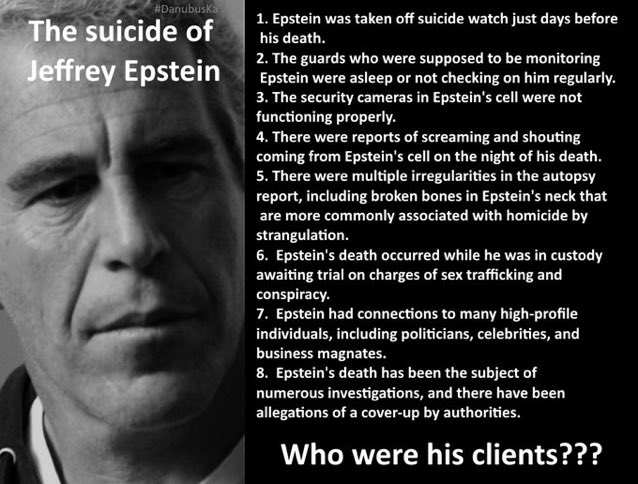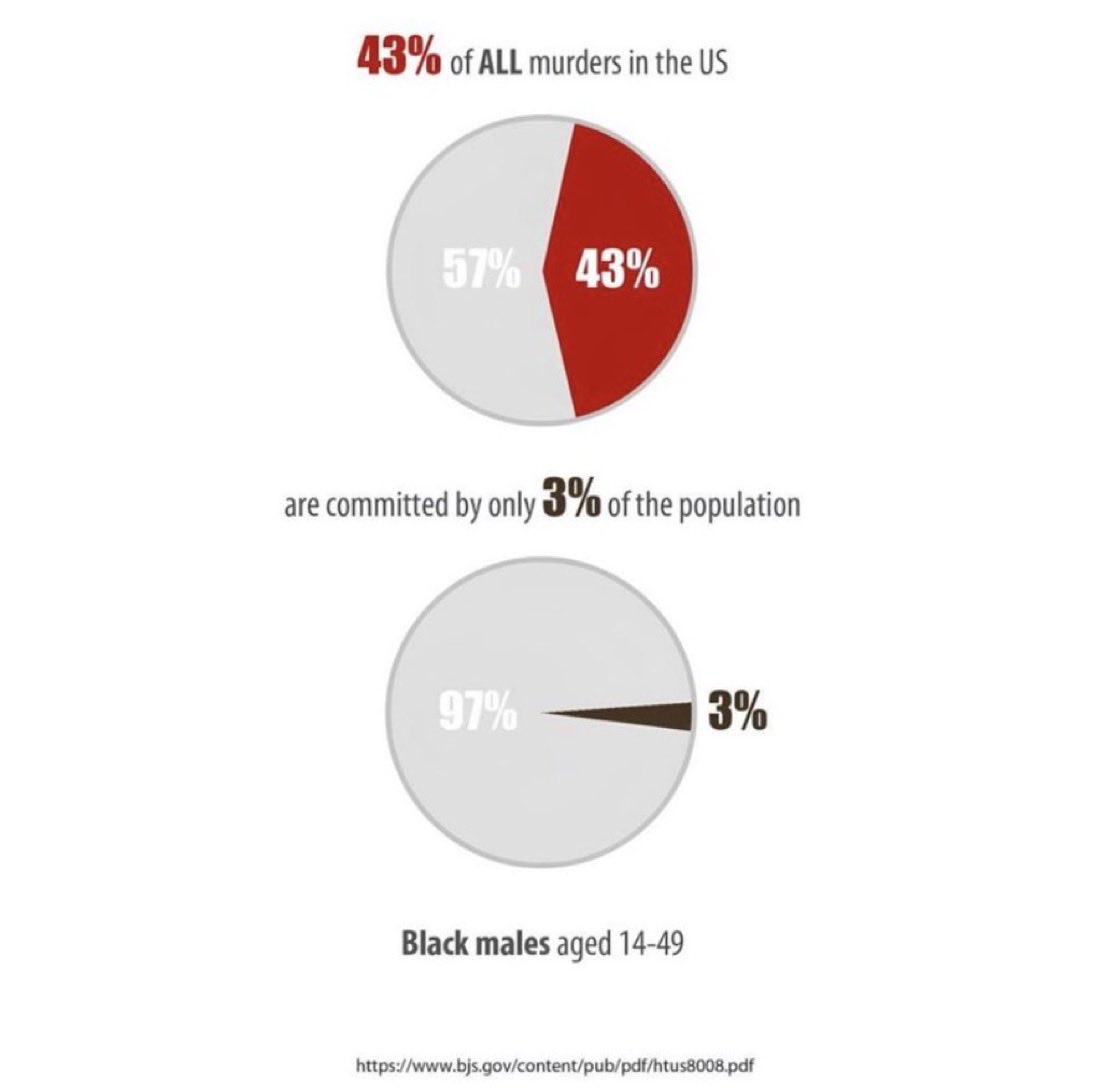In 2019, Amy Robach exposed how ABC News refused to publish her explosive Jeffrey Epstein exposé implicating Prince Andrew & Bill Clinton.
“Jeffrey Epstein was the most prolific pedophile this country has ever known.”
A thread 🧵 for awareness
“Jeffrey Epstein was the most prolific pedophile this country has ever known.”
A thread 🧵 for awareness
Here’s a prev 🧵 on #JeffreyEpstein
https://twitter.com/DeepBlueCrypto/status/1618712176797294592
Apparently the show goes on. None of the #EpsteinClientList folks got indicted. Only Epstein & Maxwell were prosecuted. The pedophiles are still running the show as if nothing changed. 

A SHOCKING REVELATION ABOUT JAMIE DIMON, CEO OF JP MORGAN.
Whitney Webb explains how the same powerful players who brought Jeffrey Epstein to prominence were primarily responsible for the rise of JPMorgan CEO Jamie Dimon.
Whitney Webb explains how the same powerful players who brought Jeffrey Epstein to prominence were primarily responsible for the rise of JPMorgan CEO Jamie Dimon.
https://twitter.com/kanekoathegreat/status/1647769774980730882?s=46&t=nNTLKTOdc_jIqNoa29XhBg
Jeffrey Epstein was a fake billionaire set up by intelligence agencies. His private island functioned as a massive child sex trafficking ring that was used to collect blackmail on the global elite (billionaires, celebrities & politicians).
FBI, CIA, NSA, DHS and the elite made… twitter.com/i/web/status/1…
FBI, CIA, NSA, DHS and the elite made… twitter.com/i/web/status/1…

We were ruled by pedophiles
We are being ruled by pedophiles
We will be ruled by pedophiles
Unless the FBI & the establishment puts an end to this mockery of a judicial system which hides everything under the pretense of national security
RELEASE EPSTEIN CLIENTS LIST NOW
We are being ruled by pedophiles
We will be ruled by pedophiles
Unless the FBI & the establishment puts an end to this mockery of a judicial system which hides everything under the pretense of national security
RELEASE EPSTEIN CLIENTS LIST NOW

Jeffrey Epstein, underage Miley Cyrus at 16 and JP Morgan executives
FBI has its priorities right like protecting its own, protecting pedophile scumbags & their assets who support them. 

Was Ellen Degeneres inspired by something on the #EpsteinIsland 

Breaking: Epstein & Maxwell were trafficking kids for no one
JP Morgan CEO’s top lieutenants reportedly made multiple trips to Epstein’s Manhattan home even after Epstein became a convicted sex offender. Jamie Dimon must have known about this for sure.
https://twitter.com/nicksortor/status/1649502693159850034
They’re all in on it #EpsteinClientList
They’ll never let elite clients out due to “National Security” claims
They’ll never let elite clients out due to “National Security” claims

Jeffrey Epstein and Ghislaine Maxwell were connected all the way up to the presidents Obama, Biden, Clinton and probably the Bushes
https://twitter.com/TheWakeninq/status/1651469794929958915
CIA's William Burns, Goldman's Kathryn Ruemmler, Noam Chomsky, a Kissinger consultant, a Rothschild, and others met with sex offender Jeffrey Epstein in the years after his conviction. They’re all in on it. No wonder the #EpsteinClientList hasn’t been released out yet. 

Now that more names are coming out in Epstein case, if they’re to arrest everyone involved with Jeffrey Epstein scandal… half of Washington DC, Hollywood, FBI and CIA would be in prison. 

This NYPost front page sums it up, but not a single client has been outed or prosecuted. I’m sure they’re all safe. 

A short and sweet #EpsteinClientList 

“Jeffrey Epstein regularly visited…and was provided with a private office space at Harvard…in the program, ‘Evolutionary Dynamics’ in 2018…AFTER he was caught fucking underage girls…” -Joe Rogan
The ex CEO of JP Morgan’s Private Asset Management division has been exposed for facilitating and participating in Jeffrey Epsteins Child Trafficking operation in the U.S. Virgin Islands.
In a court filing, Jes Stanley, was accused of taking part in sexual abuse and “used… twitter.com/i/web/status/1…
In a court filing, Jes Stanley, was accused of taking part in sexual abuse and “used… twitter.com/i/web/status/1…
Stephen Deckoff buys #EpsteinIsland for $60,000,000 to build a luxury resort for who? 

Jeffrey Epstein’s meetings calendar 6 years after he was convicted of child trafficking and pedophilia.
Just in a day on 2014 he met
- Thomas Pritzker
- Bill Gates
- Leon Black
- Mortimer Zuckerman
- Kathryn Ruemmeler
…
Just in a day on 2014 he met
- Thomas Pritzker
- Bill Gates
- Leon Black
- Mortimer Zuckerman
- Kathryn Ruemmeler
…

A Phone Call Between Woody Allen And Mia Farrow.
Woody Allen, is accused by his ex-girlfriend, actress Mia Farrow, of sexually abusing their adopted daughter Dylan in August 1992 when she was 7.
BTW - Woody Allen was a regular on #EpsteinClientList
Woody Allen, is accused by his ex-girlfriend, actress Mia Farrow, of sexually abusing their adopted daughter Dylan in August 1992 when she was 7.
BTW - Woody Allen was a regular on #EpsteinClientList
• • •
Missing some Tweet in this thread? You can try to
force a refresh
























